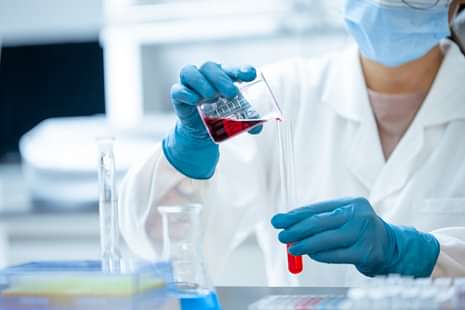Are you wondering how to become a Doctor? Navigate the journey of becoming a doctor in India. Explore specializations and ongoing learning for a fulfilling medical career ahead.

Wondering how to become a Doctor in India? Embarking on a journey to become a Doctor is a deeply meaningful pursuit, driven by the desire to heal and make a positive impact on lives. In India, the process of how to become a Doctor is a well-structured path that begins with making crucial decisions after the 12th grade. This comprehensive guide walks you through the steps to become a Doctor and answers questions like how to become a Doctor after 12th and how to become a Doctor after 10th. It will also help you kick-start a journey in the medical field.
How to Become a Doctor in India: Step-wise Guide
Here is everything about how to become a Doctor in India:
1. 12th-Grade Decisions
The first step in the journey of how to become a Doctor in India starts after completing the 10th grade. Opting for the Science stream in the 11th and 12th grades becomes essential. This foundational choice sets the stage for pursuing a medical career. Subjects like Physics, Chemistry, and Biology are not just subjects; they are building blocks for medical studies.
2. Mastering Medical Entrance Exams
The National Eligibility cum Entrance Test (NEET) stands as the gateway to medical colleges in India. To understand how to become a Doctor in India, excelling in the NEET exam is vital. Preparation involves not only a deep understanding of subjects but also honing problem-solving skills. Efficient time management, consistent practice, and thorough revision are essential to conquering this highly competitive exam.
3. The MBBS Journey
Successfully clearing NEET opens the doors to various medical colleges, marking the start of the journey on how to become a Doctor in India. The Bachelor of Medicine, Bachelor of Surgery (MBBS) program becomes the foundation of formal medical education. Spanning over five and a half years, the MBBS course is a blend of theoretical learning and practical application. Anatomy, Pharmacology, and Pathology are some of the subjects that provide a robust medical understanding.
4. The Internship Phase
Upon completing the MBBS program, the journey advances to the internship phase. This mandatory one-year period is a bridge between theoretical knowledge and practical application. Here, aspiring Doctors gain hands-on experience, dealing with real-world medical scenarios. This phase develops essential clinical skills, decision-making abilities, and the art of compassionate patient interaction.
5. Specialization
For those seeking a deeper understanding of a specific medical field, post-graduation offers an avenue for specialization. Pursuing a Master's degree (MD/MS) after the internship provides an opportunity to hone expertise. Specialization ranges from surgery to pediatrics, allowing Doctors to focus on their chosen domain and contribute significantly to healthcare.
6. Licensing and Ethical Practice
Understanding how to become a Doctor in India involves recognizing the regulatory aspect. Registering with the Medical Council of India (MCI) or State Medical Council is a mandatory step for legal medical practice. Adhering to ethical guidelines and professional standards ensures a responsible approach to patient care and maintains the integrity of the medical profession.
7. Expertise and Compassion
A successful Doctor masters the art of balancing technical proficiency with compassionate patient care. Effective communication, empathy, and active listening play a pivotal role. Doctors who convey complex medical information with empathy build strong relationships with patients, enhancing their overall well-being.
8. Embracing Continuous Education
The medical field is ever-evolving, underscoring the need for continuous learning. Lifelong learning is not just encouraged, but crucial for staying updated with the latest advancements. Engaging in ongoing medical education, attending conferences, and staying informed about research findings ensure Doctors provide the best care, integrating evidence-based practices.

Also Read:
About MBBS Admission 2023
How to Become a Doctor after 12th
Here are several pointers you can employ to enhance your trajectory as a Doctor, even after completing your 12th grade:
- Pursue Specialization: Upon accomplishing your MBBS degree and accruing practical experience as a Doctor, you can delve into a specialized domain. You might opt for fields like surgery or pediatrics. Although not obligatory for practice, specializing can augment your professional reputation. This pathway is especially relevant for those seeking how to become Doctor after 12th or how to become a Doctor after 12th. You can choose between two types of specializations post-MBBS: Doctor of Medicine (MD) or Master of Surgery (MS). Those selecting MD generally become physicians, while an MS permits a surgical specialization.
- Explore Super Specialization: Following the attainment of your MD or MS, another avenue beckons in the form of super specialization degrees. You can pursue either DM or M Ch degrees, both of which offer specialized expertise. M Ch suits aspiring surgeons, whereas the DM degree caters to physicians. Opting for a super specialization can significantly elevate your Doctor career, particularly relevant for those pondering how to become a Doctor in India after 12th.
- Continual Enhancement of Knowledge: Excelling in the medical field necessitates a commitment to continuous learning, a crucial aspect for those considering how to become a Doctor in India after 12th. As medical knowledge constantly evolves, treatment methods for diverse health conditions are subject to updates. Consequently, it is imperative to keep upgrading your medical knowledge. This can be achieved by enrolling in various certification courses and participating in pertinent workshops. While not obligatory, this approach can substantially enhance your skill set for those wondering how to become a Doctor after 12th.
How to Become a Doctor After 10th Grade
If you want to be a Doctor after finishing 10th grade, you need to follow these steps:
- Choose the Science stream with a focus on Biology in 11th and 12th grades. You can choose to study Math, but Physics, Chemistry, and Biology are a must.
- Do well in your 11th and 12th-grade exams.
- If you are in the general category, make sure you get at least 55% overall in Physics, Chemistry, and Biology (PCB).
- Prepare for and appear in NEET, a national entrance exam for medical studies in India.
- To get into a good Medical College, you need to score at least 600 marks in NEET.
- It is a good idea to start preparing for your medical career from the 10th grade itself.
Also Read: List of Courses Under NEET UG 2023
Medical Courses and MBBS Program Overview
To become a Doctor or a general physician, MBBS is the main course you need. This course allows you to practice medicine in government hospitals or private clinics. But there are other options like BSc, BAMS, and BPT that let you specialize in areas like Ayurveda or Physiotherapy and earn a title of a 'Dr'.
Understanding MBBS
MBBS stands for Bachelor of Medicine and Bachelor of Surgery. It is a full 5.5-year program to learn about medical science. It is a popular choice in India and other countries if you want to be a Doctor.
Requirements for MBBS
To get into MBBS, you need at least 50% marks in your 10+2 exams with subjects like Physics, Chemistry, and Biology.
About the MBBS Course
You get into MBBS through a test called NEET. This test replaced other tests for MBBS admissions in 2019. It is the only way to get into government and private medical colleges. For studying MBBS in countries like Canada, the US, the UK, or Australia, you need a bachelor's degree in any science field. You also need to pass exams like MCAT and language tests like IELTS, TOEFL, etc. In MBBS, you will learn about things like Anatomy, Pathology, Pharmacology, and Surgery. The course takes 5.5 years, including a mandatory 1-year internship. After MBBS, you can work as a Doctor with an average salary of INR 5-12 LPA. You can also do more studies like MD and MS to specialize in different medical areas.
MBBS Entrance Exams
- To join MBBS in India, you have to pass the NEET entrance exam.
- NEET has three parts: Physics, Biology, and Chemistry. It is a multiple-choice test.
- You get 4 marks for a right answer and lose 1 mark for a wrong one.
- For NEET 2023, you need 50% marks (40% for reserved categories) in Chemistry, Physics, and Botany/Zoology in your class 12 exams.
- You can apply for NEET 2023 if you are at least 17 years old. After NEET results, there is counselling to help you attain admission in a college.
Other Related Courses to Become a Doctor in India
Candidates interested in finding out how to become a Doctor in India after 12th without MBBS should know that they can also pursue courses like BSc, BPT, or BAMS and obtain a Doctorate/Ph.D. degree to have a prefix of 'Dr'. and become a Doctorate in specialized fields. Some of the course alternatives are as follows:
BSc: Bachelor of Science
- Bachelor of Science or BSc course is an undergraduate degree of 3 years duration, available in a variety of specializations like BSc Nursing, BSc agriculture, BSc Microbiology, etc.
- Admission to BSc is done through both Merit and Entrance exams. Top BSc Entrance exams include JET, NPAT, CUCET, etc.
- The top BSc colleges in India are Delhi University, University of Hyderabad, Loyola College, Chennai, Presidency College, Bangalore, etc.
- Candidates can become a Doctor through BSc if they pursue an MSc or master of science degree in any specialization and then go for a PhD degree in the same specialization.
- The PhD degree will authorize you to become a “Dr.” in the area of specialization you chose to pursue right from the bachelor's level.
- PhD admissions are done based on the CSIR UGC NET exam.
BAMS: Bachelor of Ayurvedic Medicine and Surgery
- BAMS course or Bachelor of Ayurvedic Medicine and Surgery is an undergraduate course of 5.5 years duration on the integrated system of modern medicine and traditional Ayurveda.
- The eligibility criteria to pursue BAMS is 50% marks in class 10+2 with biology as a core subject.
- BAMS course admission is done based on NEET 2023 score, however, some colleges offer direct admission without NEET.
- After the BAMS course, students have the opportunity to work in top government hospitals that will pay a salary as much as a Doctor's.
- In order to become a Doctor after BAMS, you can also pursue PhD or MD in Ayurveda or related fields.
BPT: Bachelor of Physiotherapy
- Bachelor of Physiotherapy or BPT course is an undergraduate course of 4 years duration that deals with the science of physical movement.
- Students with 50% marks in class 10+2 with science subjects are eligible to pursue BPT.
- BPT Admission is based on entrance exams conducted at national and state levels like - IPU CET, BCECE, VEE, etc.
- Many colleges provide direct admission to the BPT course either on the basis of merit or first cum first serve basis.
- To become a Doctor, one can continue to pursue a master's in physiotherapy (MPT) after BPT and then go for a PhD in Physiotherapy to obtain a Doctorate degree in physiotherapy.
- To be eligible for PhD in physiotherapy, a master’s degree in physiotherapy is required along with valid scores in national -level PhD entrance examination.
Becoming a Doctor in India is a remarkable journey guided by dedication, perseverance, and a genuine commitment to healing. From educational decisions after the 12th grade to navigating through rigorous medical entrance exams, pursuing the MBBS program, and potentially specializing in post-graduate studies, each step requires academic excellence and compassionate patient care. Adhering to regulatory standards, continuous learning, and upholding ethical principles further enrich the journey, allowing aspiring Doctors to contribute meaningfully to society's well-being. As you embrace this path, remember that becoming a Doctor means becoming a beacon of hope and healing, making a lasting impact on countless lives.
Read More:
Are you feeling lost and unsure about what career path to take after completing 12th standard?
Say goodbye to confusion and hello to a bright future!

NEET Previous Year Question Paper
Was this article helpful?



















Similar Articles
7 Last-minute Preparation Tips for NEET 2025: Check Important Topics & How to Crack the Exam
Medical Courses Without NEET in India: Eligibility, Fees, Colleges Name, Job Profiles
NEET 2025 Biology Revision Notes
NEET 2025 Reservation Policy
List of BAMS Colleges Accepting NEET 2025 Score - Check Fee Details Here
AIIMS NEET UG Opening & Closing Ranks